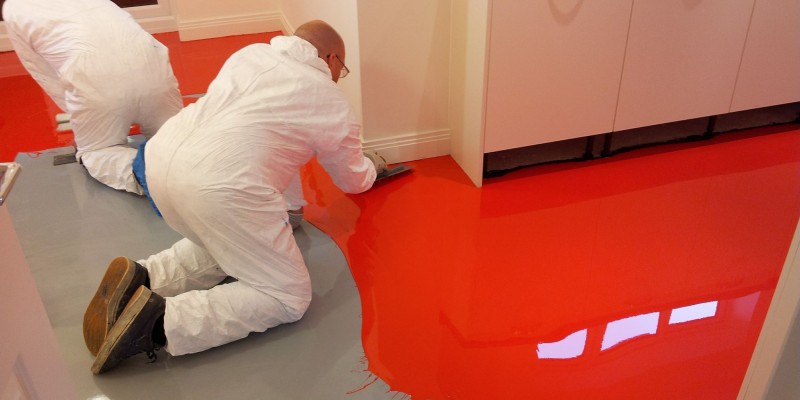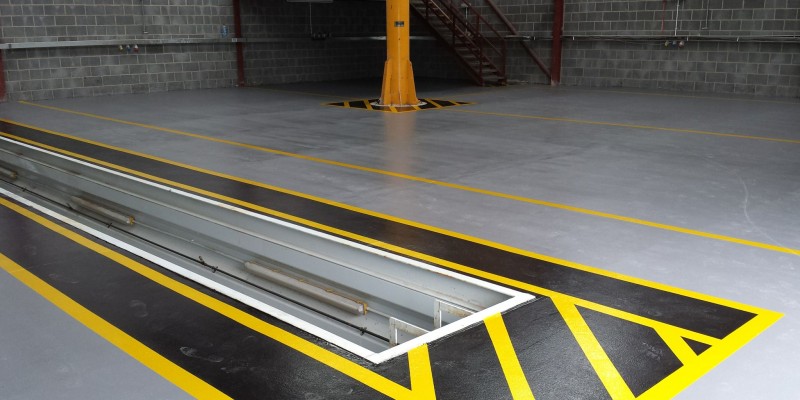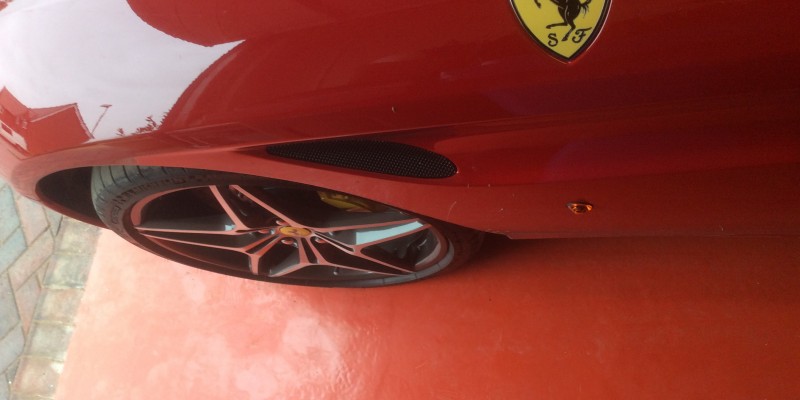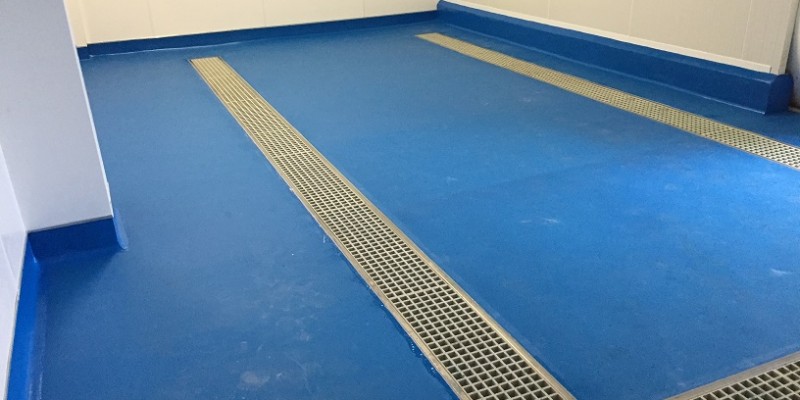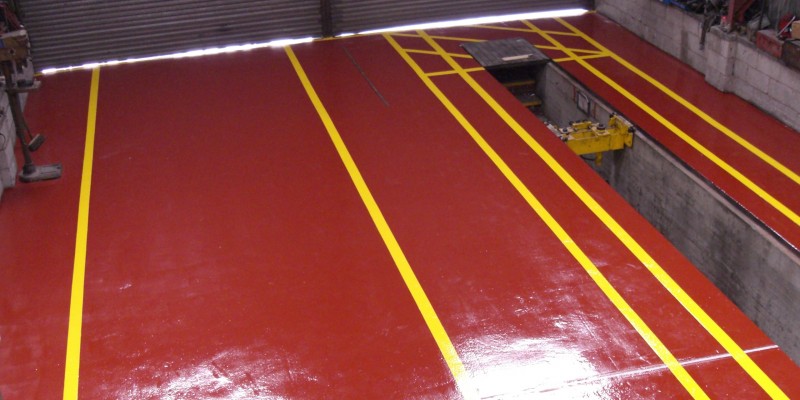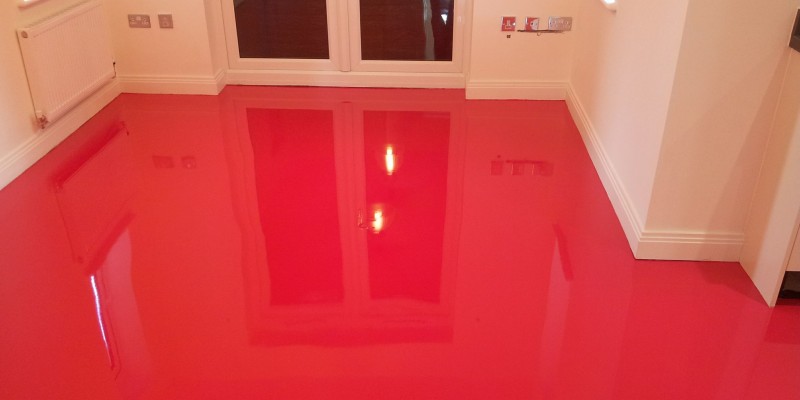What is Industrial resinous flooring?
Industrial resinous flooring is a hard-wearing plastic surface. It’s made by mixing a section of ingredients together to initiate a controlled and fast chemical reaction. This creates a highly durable finish, making it perfect for the heaviest use environments.
Industrial resinous flooring in its simplest form, just a resin coating, consists of a formulated synthetic resin and a separate hardener. If performance demands intensify then the number of ingredients will increase to involve pigments, aggregates, decorative chips/ flakes and sometimes cement powder. In most cases, thicker resin floor types are usually harder than concrete.
Usually, resin floors utilise a primer, this penetrates the substrate to create a reliable and high strength bond, this is important to the longevity of the floor. Once the primer is on it’s usually followed by a main structural layer, this can sometimes be known as the ‘body coat’. It forms the bulk of the floor thickness and supplies many of the key performance elements, for example impact resistance, compressive strength and flexibility, as well as defining the decorative finish of the floor.
Typically resin floors will be completed with 1 to 3 seal coats to encapsulate the decorative element of the floor and the body coat, It also provides the final performance characteristics, such as chemical and wear resistance.
The types of resin flooring
There is only three main types of resin used to create the majority of resin flooring:
- Epoxy
- Methyl Methacrylate (MMA)
- Polyurethane (PU)
Speed of installation
Most resin systems are installed in multiple layers. MMA (Methyl Methacrylate) cures fully in just two hours, so there isn’t a lot of downtime between the application of each of the layers. Epoxies and polyurethanes take longer, around -8 hours to cure between each application, this causes significantly longer installation periods.
Temperature while installing
MMA can be installed at temperatures down to -30°C, with no effect on cure time. For Polyurethanes and Epoxies the same cannot be said. Usually these products cannot be installed at temperatures less than 5-10°C. Optimal cure occurs at 20°C. Temperature significantly effects the speed of cure for polyurethane and epoxy. The higher that the temperature is, the higher the cute. Although if epoxies and polyurethanes get exposed to temperatures below 5°C then there is a very high chance that the installation will be compromised.
Details
PU floors usually require retention chases to be cut into the floor, and at all termination points, this is to try offset the shrinkage stresses that occur when the floor cures. This can complicate the installation and could result in performance problems. MMA resin doesn’t shrink and accordingly installation is very simple, repeatable and the finished floor is reliable.
It can also be bonded directly to drainage channels or other potential areas of weakness, this will create a reliable and durable installation. In a lot of cases epoxy and PU finishes require an expansion joint to be installed in these areas, which will create weakness that often causes future issues.
Why use resin flooring?
There are many positives of resin flooring, a few being:
- It protects the substrate from damage; most resin flooring systems will offer far better wear, chemical resistance and impacts than the substrates they cover.
- Offers unrivalled hygiene and ease of maintenance; Resin finishes are hygienic, seamless and simple to clean, they also stop the dusting of cementitious substrates.
- Safer working environments; It also provides a safer working environment, you can purchase slip resistant versions of resin flooring, offer outstanding performance even in demanding production environments and it’s also very hygienic.
- Design flexibility; Resin floors offer almost unlimited design flexibility. You can now get them in a wide range of decorative finishes, often bespoke, that can provide a unique look to even the smallest project often without a cost premium.
How does it work?
Industrial resin floor is specifically created and designed for buildings that are used for industrial purposes, for example warehouses, laboratories and plants. Industrial resin flooring has a set of its own unique characteristics that make it stand out from other types of flooring. It has been purposely designed so that it is able to withstand heavy weights exerted by heavy machinery without suffering from corrosion or cracking resulting due to spillage of industrial chemicals.

